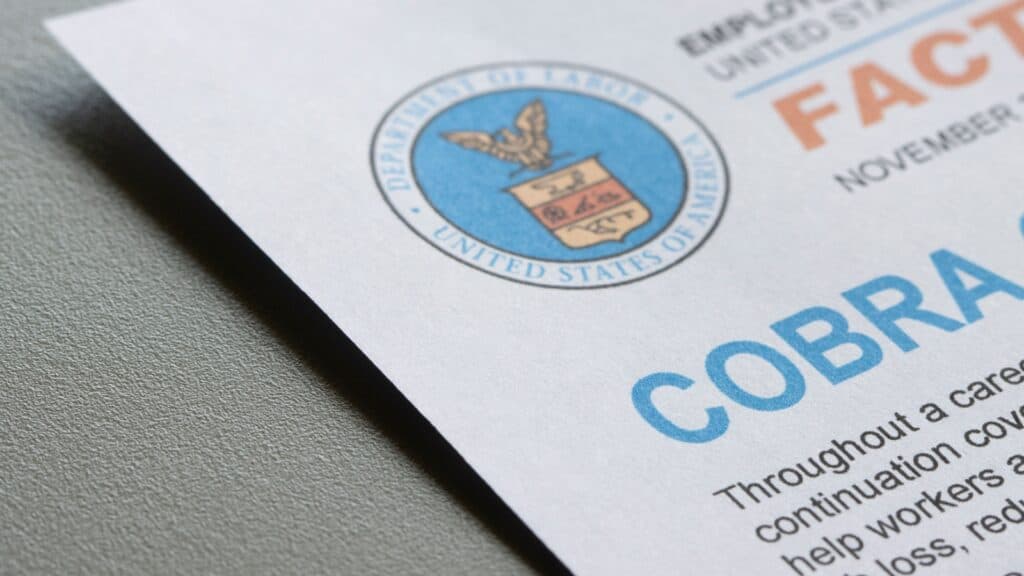7 Ways to Secure Health Insurance Coverage After Losing Your Job
Losing employment can feel like navigating turbulent waters without a compass. The uncertainty of health coverage adds to the stress. However, understanding your options can bring clarity and relief. We understand the challenges that come with such a situation and offer clear pathways to secure coverage. Let’s explore the options.
Seven Pathways to Health Insurance

There are 7 basic ways to approach health insurance during a period of unemployment. We will take them one at a time.
1. Short-Term Health Insurance

Designed to provide temporary coverage during transitions, short-term health insurance offers a safety net for emergencies and gaps in traditional coverage. While not as comprehensive, it ensures essential protection. Short-term policies may not cover everything, but they can handle inpatient/outpatient procedures, emergency room visits, and intensive care costs.
2. COBRA (Consolidated Omnibus Budget Reconciliation Act)

COBRA allows continuation of employer-based coverage for a limited period after job loss. While it maintains continuity, individuals should be aware of the full premium responsibility, which can be costly. Before opting for COBRA, explore other options as it can be more expensive due to the full premium cost.
3. Marketplace Health Insurance

Accessible through government-run marketplaces, this option provides coverage within a specified enrollment window. Subsidies can alleviate financial strain, especially for those with limited income. Look for subsidies to help with rising costs and consider high-deductible plans if you’re healthy and cost-conscious.
4. Medicaid and CHIP

Medicaid offers support to low-income individuals and families, irrespective of employment status. Its income-based eligibility makes it a viable option for many facing job loss. In most cases, Medicaid is free, making it an excellent option for those with limited income. CHIP stands for Children’s Health Insurance Program, and it is an insurance program that provides low-cost health coverage to children in families that earn too much money to qualify for Medicaid but not enough to buy private insurance. In some states, CHIP covers pregnant women.
Each state offers CHIP coverage and works closely with its state Medicaid program. You can apply any time. If you qualify, your coverage can begin immediately, any time of year.
5. Medicare

Available for those over 65 or with certain disabilities, Medicare covers various medical expenses, offering a lifeline for individuals transitioning out of employer-based coverage. It covers hospital expenses, medical costs, and prescription drugs.
6. Private Individual Plans

Direct purchase from providers or independent agents ensures tailored coverage, though it may not match ACA marketplace policies’ extent. It provides flexibility and protection during uncertain times.
7. Healthcare Cost Sharing

An alternative to traditional insurance, these programs involve mutual financial contributions to cover medical expenses. They offer a community-based approach to healthcare financing. These programs function similarly to health insurance but involve participants directly contributing funds to cover each other’s medical expenses. They offer an innovative approach to healthcare financing. Do your homework to understand the pros and cons.
Navigating the Process

No matter the route you ultimately take, starting right away to establish coverage is suggested.
Start Early

Initiate discussions with HR regarding health insurance benefits and COBRA options before leaving employment to facilitate a smooth transition. Starting early ensures you have ample time to explore and evaluate your options thoroughly.
Gather Information

Collect necessary documents such as income details, tax records, and previous insurance plan information to streamline the application process. Having all required information readily available expedites the application process and reduces potential delays.
Seek Expert Advice

Consulting independent insurance agents can offer personalized guidance, helping individuals navigate state-specific requirements and find optimal coverage. These professionals have expertise in the field and can provide valuable insights tailored to your unique situation.
Emergency Fund

Maintaining an emergency fund is essential to cover unexpected medical expenses, providing financial stability during transitions. Having a buffer ensures you can address any unforeseen healthcare costs without significant financial strain.
Exploring Alternative Paths

While traditional insurance options exist, alternative approaches such as healthcare cost-sharing programs empower individuals to manage healthcare costs collectively. By contributing directly to each other’s medical expenses, participants gain control and flexibility over their healthcare needs. Exploring alternative paths allows individuals to consider innovative solutions that may better suit their needs and circumstances.
The Takeaway

Navigating health insurance after job loss requires careful consideration of available options and proactive planning. By understanding and exploring various pathways, individuals can secure the coverage they need during transitional periods. Taking proactive steps and exploring available resources empower individuals to navigate the complexities of health insurance transitions with confidence and peace of mind.
Science Tells Us What To Expect As We Age: Strategies For Thriving In Later Life

How does aging affect our bodies and minds, and how can we adapt to those differences? These are questions that pertain to us all. Aging gradually alters people over decades, a long period shaped by individuals’ economic and social circumstances, their behaviors, their neighborhoods, and other factors. Also, while people experience common physiological issues in later life, they don’t follow a well-charted, developmentally predetermined path. Let’s take a look at what science has told us to expect. Read: Science Tells Us What To Expect As We Age: Strategies For Thriving In Later Life
3 Simple Somatic Movements You Can Do To Calm Your Nervous System

Daily life can be unnerving. And it’s easy to go from calm to anxious or nervous in a flash. What’s harder is to go from anxious or nervous to calm.These simple movements that I am going to share here have been found to successfully move an individual from a state of anxious nervousness to a state of calm. Read: 3 Simple Somatic Movements You Can Do To Calm Your Nervous System
Join Us

Join us on this empowering journey as we explore, celebrate, and elevate “her story.” The Queen Zone is not just a platform; it’s a community where women from all walks of life can come together, share their experiences, and inspire one another. Welcome to a space where the female experience takes center stage. Sign up for our newsletter so you don’t miss a thing, Queen!







